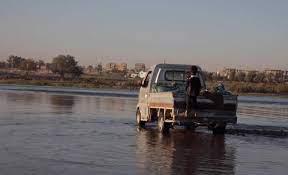
On 6 October 2022, the Ministry of Public Health (MOPH) announced the first cholera case in the North of Lebanon. By the 12th November, cholera has spread further to Mount Lebanon and East Lebanon mainly in Arsal, Baalbak and Central Bekaa Governorates with more than 3,300 suspected and confirmed cases and 18 deaths across the country. Children make up over 50% of all cases and children aged between 0-4 years make up around a third, showing their unique vulnerability. Health professionals estimate that the number cases with symptoms are usually 3 times what is reported by MOPH due to limited testing. Lebanon is likely to witness a further surge in cholera spread due to weak water and sanitation infrastructures.
Preliminary indicators continue to reflect a poor WASH environment, risking a rapid spread of the disease if early action is not taken. As of 11th November, Save the Children data shows:
78.3% of existing boreholes are bacteriologically contaminated across North, Akkar, Beqaa, Baalbek – El Hermel, Beirut, Mount Lebanon, and South Governorates.
83.3% of water tests conducted in Informal Tented Settlements (ITS) are showing water contamination.
52.5% of water tests from entities connected to public water are showing contamination.
A significant number of households in ITS do not have access to proper water and latrine solutions.
Among 186 water analyses in public schools conducted by Save the Children in the last two weeks of October,
62.4% yielded unsatisfactory results with high prevalence of coliforms existing in the bacteriological test, while 37.6% yielded satisfactory results. Of those schools whose water source is a public network, 49% were unsatisfactory while 51% were satisfactory; while the water sources from boreholes showed 78% unsatisfactory results and 22% were satisfactory.
Save the Children has been responding with partners in three areas of implementation in East, North and Central Lebanon, as one of the largest WASH actors in Lebanon. To date, we have:
o Trained over 600 frontline workers,teachers and partners on cholera awareness, including transmission, symptoms, treatment, prevention and referral mechanisms.
o Tested water in 88 public schools, 48 community centers of local partners, one local NGO office and 4 community water sources.
o Distributed over 4,199 chlorine dioxide tabs in 43 public schools, 45 community centers and in 2 ITS, improving water quality for communities.
o Detected cholera in 10 public schools in Akkar, Beirut, Mount Lebanon, and South, and in 4 centers in the North and Mount Lebanon. We responded with ‘chlorine shock’, a rapid water treatment solution, in 17 schools.
o Distributed ‘Free Residual Chlorine’ (FRC) tests to 15 schools (8 in Akkar, 4 in Beirut, and 3 in Mount Lebanon) to monitor chlorine concentration in the water. 3 FRC tests were also distributed for communities in 3 ITS.
o Trained focal points in all centers, public schools and ITS on the chlorine dioxide tablet treatment process and FRC test usage.
o Detected 10 cases in 3 ITS in Beqaa and distributed hygiene promotion sessions, hygiene kits and cleaning of water tanks.
o Procured 100,000 chlorine dioxide tabs to treat contaminated water in schools and community centers.
o Distributed 41 Oral Rehydration Salts (ORS) and 135 family hygiene kits to support the treatment of cholera cases in Central and West Bekaa.
o Conducted a cleaning campaign for the water tanks in an ITS in the Beqaa, ensuring tanks were cleaned and chlorine was distributed.
o Delivered cholera and hygiene awareness sessions to 622 individuals in Beqaa and 1,656 individuals in Beirut & Mount Lebanon.
o Scaled up safe water deliveries and increased desludging to over 37,846 people living in ITS, including 21,769 children in Central and West Bekaa.
Source: Relief Web
https://reliefweb.int/report/lebanon/save-children-response-cholera-crisis-lebanon-november-2022
 FR
FR EN
EN AR
AR








